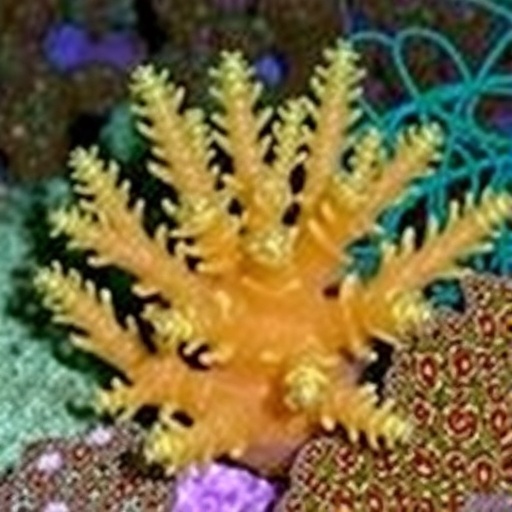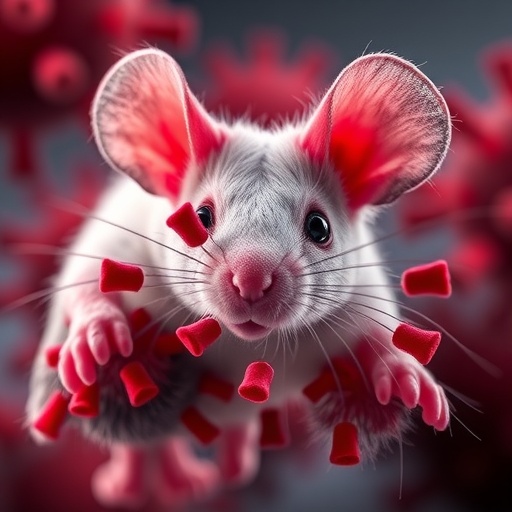In a groundbreaking study published in the prestigious journal Nature Chemical Biology, researchers led by Dell, Kogawa, and Streiff delve into the chemical richness and diversity of previously uncultivated ‘Entotheonella’ symbionts residing within marine sponges. This remarkable research sheds light on the complex relationships between these symbionts and their sponge hosts, providing a fascinating glimpse into the largely unexplored world of marine microbial ecology. By utilizing advanced molecular techniques, the authors were able to uncouple the intricate biochemical pathways that govern the interactions between symbionts and their sponge environments.
The marine ecosystem is replete with diverse organisms, yet many of these, particularly those in symbiotic relationships, remain poorly understood due to the challenges associated with cultivation in laboratory settings. The authors of this study recognized a critical gap in knowledge surrounding the diverse chemical compounds produced by uncultivated microbial symbionts. The ‘Entotheonella’ genus has traditionally evaded cultivation, making it a prime candidate for exploration in terms of its chemical ecology and potential biotechnological applications.
The researchers collected various marine sponge specimens from different geographical locations, leading to a comprehensive analysis of their microbial inhabitants. Employing cutting-edge metagenomic techniques, the team was able to recover genetic material from the symbionts and leverage this information to reconstruct biosynthetic gene clusters responsible for the production of bioactive compounds. This innovative approach not only highlights the potential of marine sponges as reservoirs of novel chemical diversity but also opens up new avenues for drug discovery and development.
One of the standout findings from this research is the identification of several unique classes of secondary metabolites produced by ‘Entotheonella’ symbionts. These compounds, often noted for their pharmacological properties, have implications for treating diseases such as cancer, bacterial infections, and other health conditions. The study emphasizes the necessity of further research into marine symbionts, which may uncover chemical libraries that are unparalleled in their complexity and functionality.
As the scientists probed deeper into the biochemical capabilities of these symbionts, they noted intriguing patterns in chemical diversity that correlated with the environmental contexts of the sponge habitats. Particular chemical profiles emerged in symbionts associated with sponges from nutrient-rich environments compared to those from more oligotrophic conditions. This variability not only signifies the adaptability of these microbial communities but also suggests evolutionary mechanisms at play in response to converging ecological factors.
The broad implications of unlocking the chemical potential hidden within ‘Entotheonella’ symbionts extend beyond basic science. The synthesized compounds, often with antimicrobial, antiviral, and anticancer activity, hint towards applications in pharmaceutical development. If harnessed effectively, these findings could lead to the creation of innovative drugs that leverage the unique evolutionary pathways of these marine microorganisms.
Moreover, this exploration of symbiotic relationships between sponges and their microbial inhabitants raises broader questions about the sustainability of marine ecosystems and biodiversity. As issues such as climate change and habitat destruction threaten these living communities, understanding their chemical networks becomes increasingly vital. Such knowledge can inform conservation efforts, ultimately contributing to the preservation of medicinal resources that reside in these vibrant habitats.
In addition to the scientific implications, this study serves as a clarion call for interdisciplinary collaboration between marine biologists, chemists, and ecological conservationists. The complexity of marine ecosystems requires a holistic approach to research, one that recognizes the interconnectedness of various biological systems. Engaging multiple scientific disciplines can enhance understanding and drive innovative solutions to protect and sustain marine biodiversity.
As the research team prepares for further investigations, they express hope that their findings will stimulate interest in the untapped potential of marine microorganisms. By showcasing the richness of ‘Entotheonella’ symbionts, they aim to inspire future endeavors that focus on discovering more about the symbiosis between marine life and microorganisms. This exploration is not merely an academic pursuit; it represents an opportunity to uncover biological treasures that could ultimately benefit humanity.
The intricate dance of life within marine sponges paints a vivid picture of an ecosystem where cooperation and chemical warfare coalesce. Each sponge serves as a biochemical melting pot, where various microbial communities engage in complex interactions with significant implications for marine health and ecological balance. This study by Dell and colleagues highlights the importance of focusing on these relationships to uncover new biological insights.
In closing, the study of ‘Entotheonella’ symbionts not only expands our understanding of biochemical diversity within marine ecosystems but also paves the way for groundbreaking biomedical discoveries. As researchers continue to unveil the hidden chemical narratives written by these symbionts, they remind us of the larger connections between our health and the health of marine ecosystems. This pioneering research is a testament to the continuing quest for knowledge and the relentless pursuit of discovery in the face of nature’s mysteries.
As we look onward, the marine realm remains an uncharted frontier, replete with potential. The findings from this research signify a pivotal moment in marine microbiology, ultimately enhancing our appreciation for the complex interdependencies that sustain maritime life. With adequate funding and focus, the untold stories of ‘Entotheonella’ and its incredible symbiotic network may one day yield transformative benefits for medicine, biodiversity, and conservation efforts.
Subject of Research: The chemical richness and diversity of uncultivated ‘Entotheonella’ symbionts in marine sponges.
Article Title: Chemical richness and diversity of uncultivated ‘Entotheonella’ symbionts in marine sponges.
Article References:
Dell, M., Kogawa, M., Streiff, A.B. et al. Chemical richness and diversity of uncultivated ‘Entotheonella’ symbionts in marine sponges. Nat Chem Biol (2025). https://doi.org/10.1038/s41589-025-02066-0
Image Credits: AI Generated
DOI: https://doi.org/10.1038/s41589-025-02066-0
Keywords: Marine Sponges, Entotheonella, Symbionts, Chemical Diversity, Marine Microbiology, Biosynthetic Pathways, Drug Discovery, Marine Ecology, Microbial Ecology, Metagenomics.
Tags: advanced molecular techniques in microbiologybiochemical pathways in spongesbiotechnological applications of marine microbeschallenges in cultivating symbiotic microbeschemical diversity in marine organismschemical ecology of marine spongesEntotheonella symbiontsexploration of marine biodiversitymarine sponge microbial ecologymetagenomic techniques in marine researchsymbiotic relationships in ecosystemsuncultivated microbial symbionts





